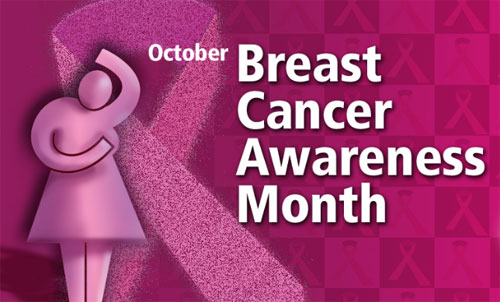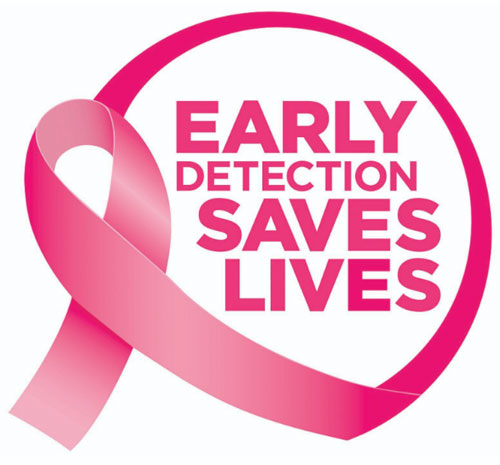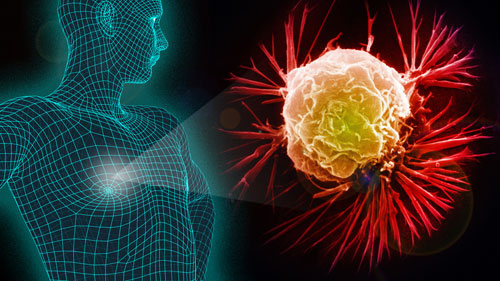
Breast Cancer Awarness
Risk factors:
- Positive family history
- Early menarche
- Late menopause
- Nulliparity
- Western food habits
- Use of HRT
- Obesity.
- Around 15-20% of cases are genetically linked to the BRCA genes (1 &2).
Prevention & Screening:
- Prevention strategies for BRCA mutated patients include prophylactic mastectomy.
- Screening to detect breast cancer before it manifests is the most effective means of disease prevention in general.
- Screening is done mainly by special images of the breast, known as mammography.
- This is usually an ultrasound scan for ladies younger than 40 years who have a family history and an x-ray for older ladies. *Mammograms should ideally be done annually from age 40 till 70-75 years but in practice, every 2-3 years will also suffice.
- Other less reliable, but useful methods include breast self examination monthly and a clinical breast examination by a health worker every 6 months.
Diagnosis:
- Once breast cancer is suspected, diagnosis is confirmed by a scan and a biopsy.
- If the disease is suspected to be advanced, staging scans to check disease spread elsewhere in the body are necessary.
Treatment:
- If disease is localised, surgery is the main curative treatment.
- Some patients need chemotherapy before or after surgery for prevention of disease spread.
- Removal of the tumour with conservation of the breast is the standard of care. This is followed by postoperative radiotherapy.
- In case of multicentric disease or where breast conservation is difficult or patient is unwilling, removal of the whole breast (mastectomy) is required.




